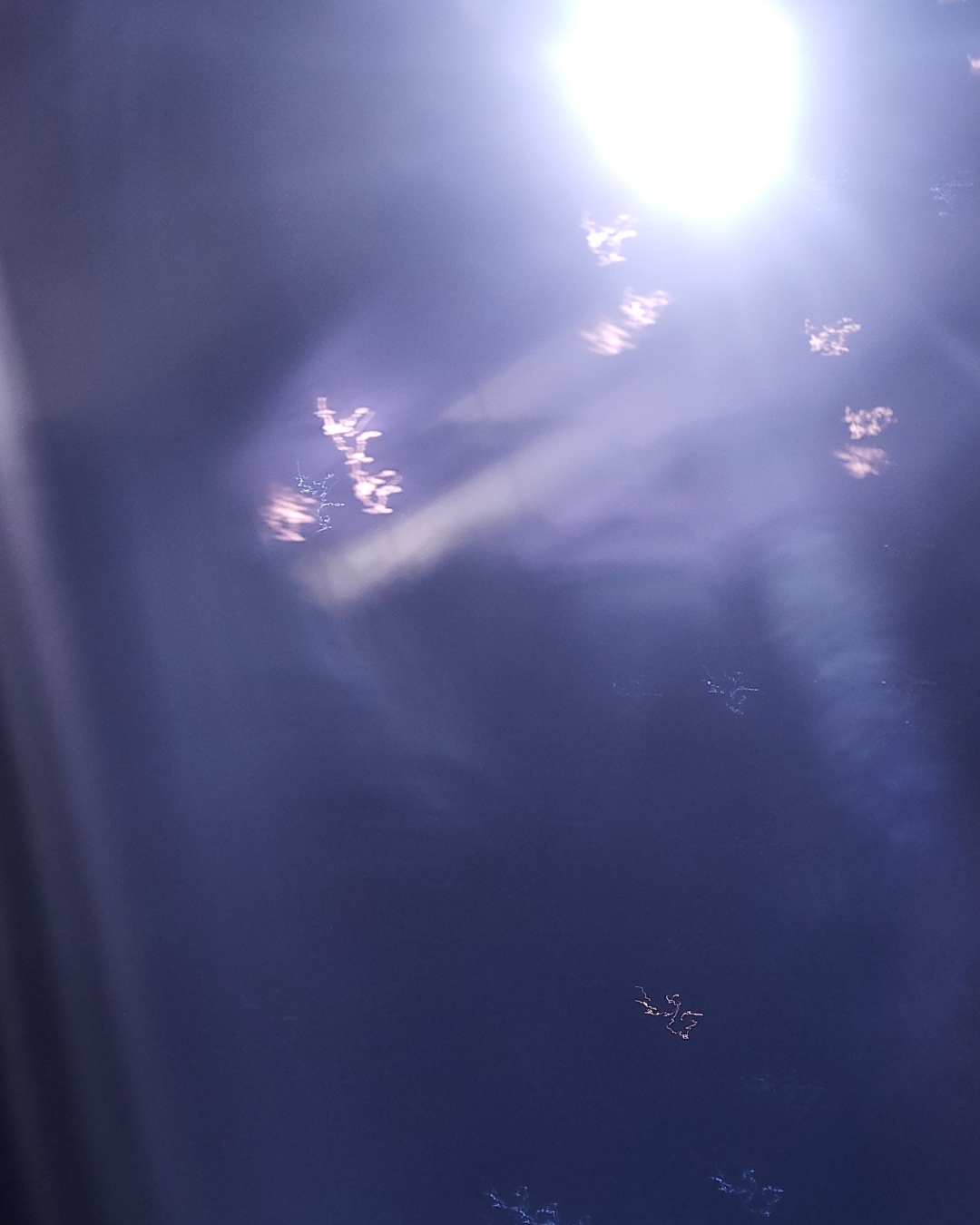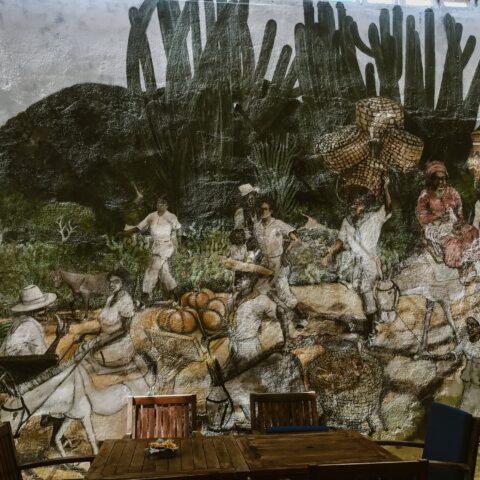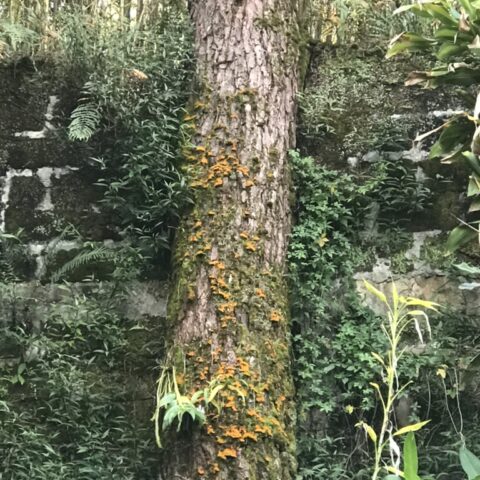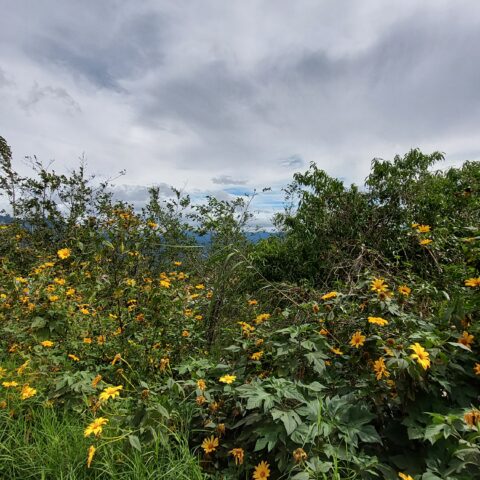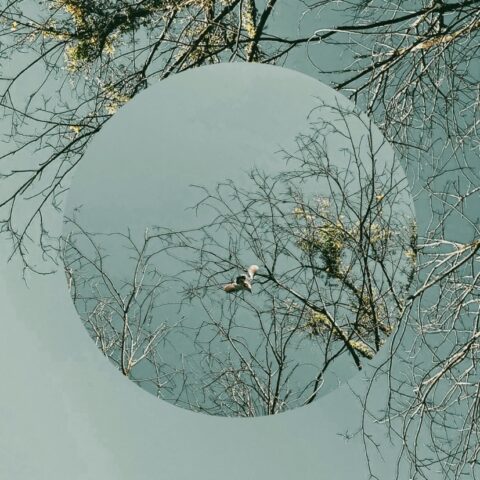Photos taken and provided by Mattie Balagat.
Every month, the Agam Agenda shares a letter from someone in our team: a personal message toward shaping kinder futures. Read the letter for March 2023 by Mattie Balagat, our designer.
A pot-bellied toad has been sitting rather snugly at the bottom of my gut.
It lets out a gassy croak that reverberates in my bones in response to very innocent questions: “What are you planning to do after you graduate?” “Are you going to work in Japan?” “Why work here in the Philippines when you can work there?” “What are you going to do with your degree?” My toad is witness to all the kinds of open-ended responses/non-responses I’ve given. “You’ll figure it out” is often the most comforting reply. Other times the topic is awkwardly chuckled away.
Bless everyone. After all, we work to attain some form of security or guarantee in our lives: we get a degree, save a portion of our earnings, pay for all kinds of insurance, invest in our health and homes, make sure we are nurturing two-way relationships, try not to invite bad karma or divine punishment. But is it ever enough? For all their promises, it now seems that modern guarantees still fall short of assuring a future we can thrive in—or even survive in.
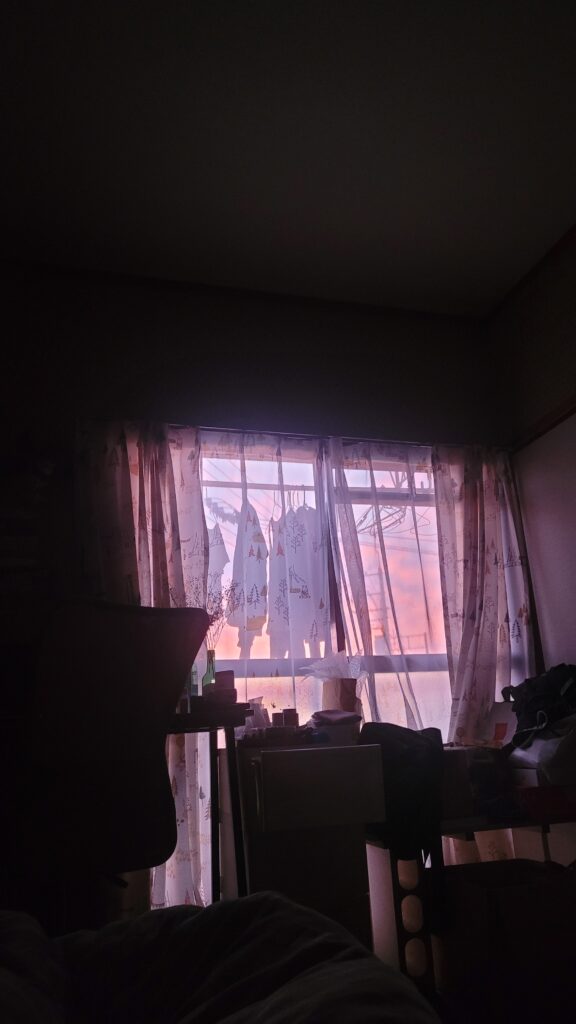
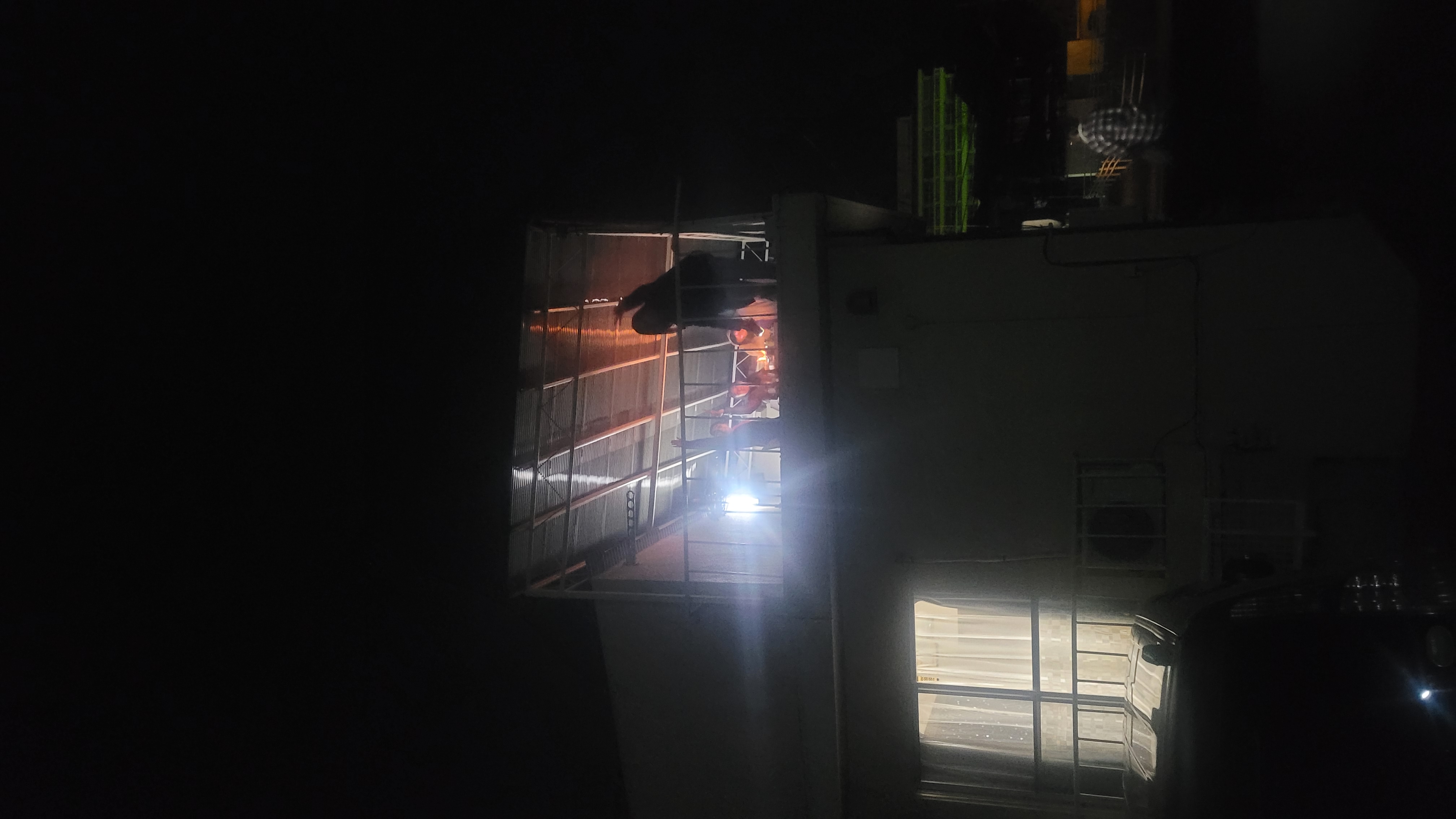
It is a good time to question how we’ve lived, or even how promises of guarantee or security have misled us here.
At the height of the pandemic, many were shocked by the fact they were just one hospital trip away from poverty. In the past year, for many Filipinos, kitchen essentials, notably onions, absurdly transfigured into gold. The latest climate science is warning us (as it has been for a while) that our window of opportunity to avert the upheaval of ecosystems and communities is rapidly closing, and we are still saddled by governments and multinational corporations telling us that we use too many plastic bags and straws. On some days, I feel the pang of dear friends or family drifting away—physically or emotionally—and I chalk it up to “adulting”. I play Animal Crossing to stop thinking of how seriously a liberal arts degree would be taken by the job market.
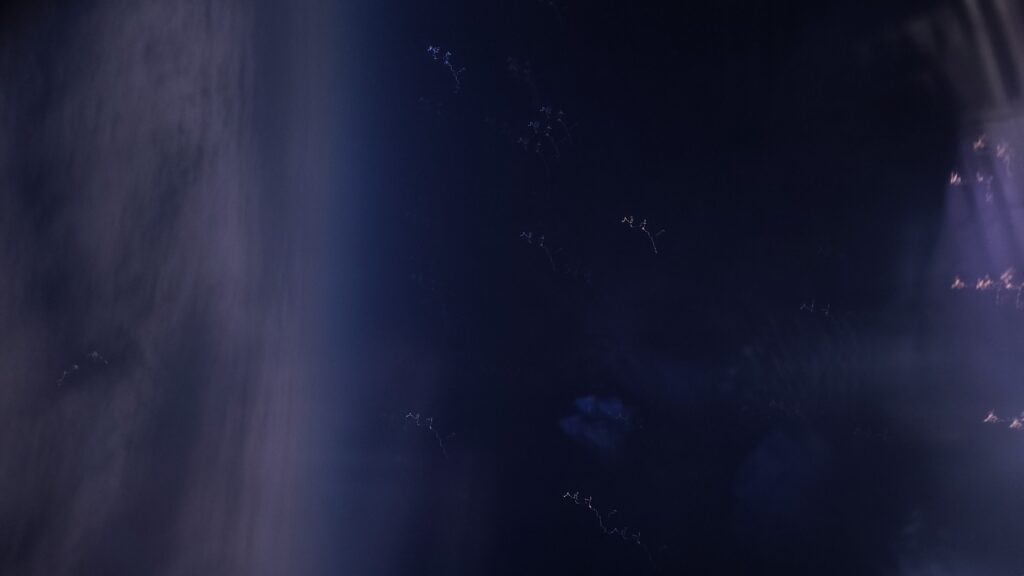
Precarity is not new. The reality that too many people have lived day-to-day without certainty of what tomorrow will demand of them is a long-running question of justice.
Perhaps now, as many more feel how the precarity of today is settling into our lives in insidious ways, it is a good time to question how we’ve lived, or even how promises of guarantee or security have misled us here. Were we wrong in our cost-benefit calculus of life decisions so far? Do we not have it in ourselves to live and thrive in this world anymore? What do we do with this precarity, this vulnerability to everything, everywhere, all at once?
The challenge now is perhaps not to buy ourselves differently into security (are we not already working so hard?), for there are no magic purchases nor technologies that can determine or direct how our worlds and our places within them are rapidly changing. No, the challenge is to first embrace our human vulnerability. Or at the very least, that’s been my coping mechanism as a grad-waiting student.
What do we do with this precarity, this vulnerability to everything, everywhere, all at once?
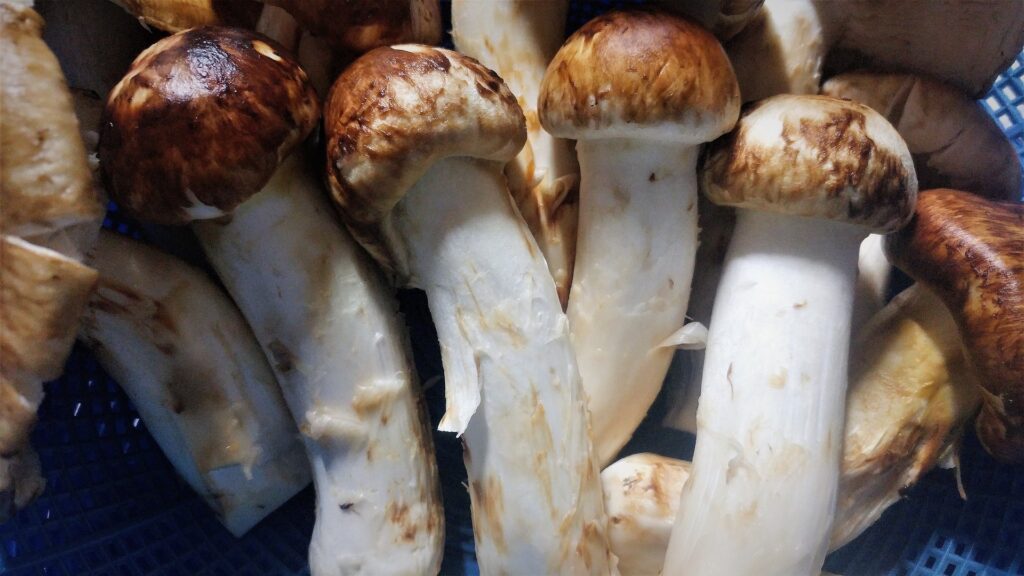
Apart from sitting with my toad of doom and anxiety (which I already allot quite a lot of time for), I want to reflect with mushrooms. To be specific, matsutake mushrooms, whose lifeways are traced luminously by a favorite anthropologist, Anna Tsing, in her book The Mushroom at the End of the World. Matsutake mushrooms sprout and thrive in landscapes we might describe as ruined or plundered: forests that have been logged over in a craze for quality lumber in various parts of the world. Politicians might call these mushrooms “resilient”, but that would be simplifying the story. In the midst of ecological wreckage, mushrooms cross paths with partners like pines and foragers, and grow their expansive roots and precious caps through relationships with such partners, which in a number of ways would not occur without human disturbance.
The stories of our human vulnerability may connect with matsutake mushrooms when we consider that the ruins we share have been left by the same narratives or promises of development, stability, or progress. In the same vein, we too, like matsutake, can start to find it in each other and the world around us to have a joyous and precious making-it-through.
To exist in a time and space of uncertainty is to welcome, without choice, numerous possibilities.
To exist in a time and space of uncertainty is to welcome, without choice, numerous possibilities. Possibilities that may be catastrophic, yes, but maybe life-giving, maybe reinvigorating, maybe gracious, and definitely transformative. In acknowledging the precarity and vulnerability we live with, our senses sharpen and become keen. We realize who or what we’ve depended on to get where we are, what networks of compassion and good fortune have supported us thus far. To me, all this is encapsulated in the experience of waking up with seasonal vertigo in a second home in another time zone, wishing I could be brought food to my bed by my mother, asking why did I get sick why is my body like this why does winter exist why did I choose to study here I’ll just lay in misery—to wake up later to a hearty dinner cooked by my roommate. (Real!)
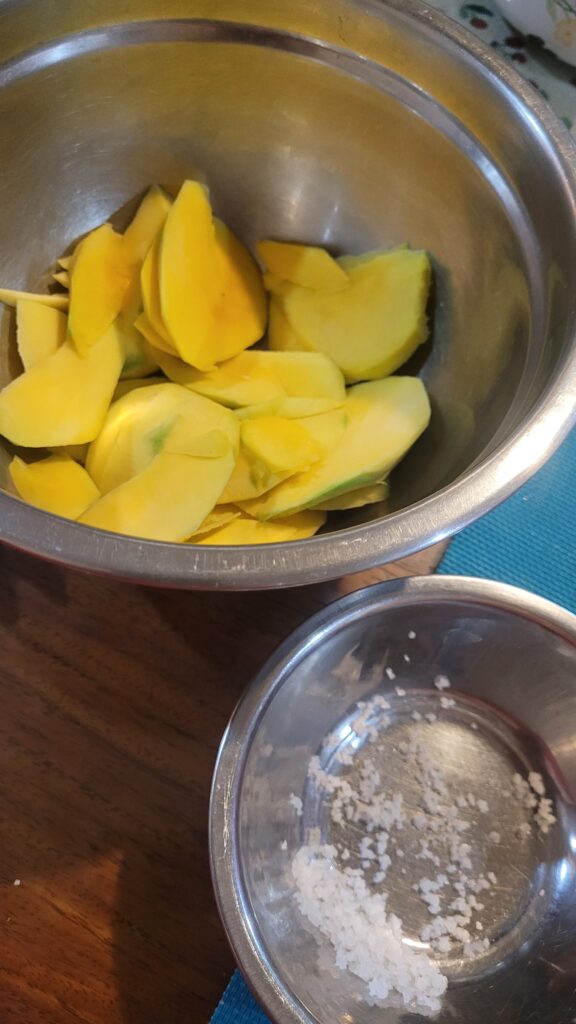
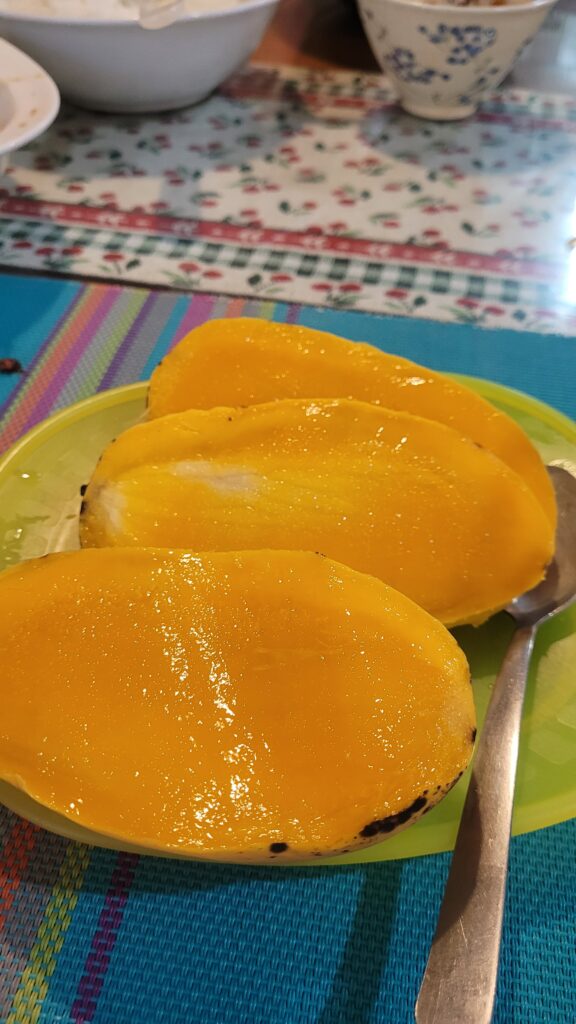
The experience of vulnerability can be equal parts painful and gratifying. Precarity nudges us to make space for these relations with people and our environment that keep us alive and still human. Any movement in precarity will need our trust and faith in these bright elements and agents—be they our miraculously alive succulents, or the flicker of sunlight by our bed, or our functioning legs, or the rush of confessional words, or our dear friends and family.
When I hear that same genre of questions again, I will probe my gut and say hello to my toad of doom and anxiety (it looks cute, actually). And I will sit with my body, and what I have, what small and plenty I still have and may share, whom I may also sit and share with, before I move. I hope we start embracing our vulnerability and aid each other in exploring this human condition. May we all make it through with joy.
